- Home
- Hilary Mantel
A Change of Climate: A Novel Page 8
A Change of Climate: A Novel Read online
Page 8
Anna made a tentative movement, in the direction of the tea tray. The archbishop nodded to her, then turned and addressed himself to Ralph.
“You have heard of the Bantu Education Act. They have put you in the picture in London, I hope. You know our preeminence in education; the churches have done everything, the government nothing. It is we who have educated the African. We did not know, when we were doing it, that we were going about to embarrass the government. All we have achieved, as they see it, is to create a threat to them. By this Act they mean to remove the threat.”
“I find it difficult to get my mind around it, I suppose,” Ralph said. “Education is progress, would you not think, it is civilization? I can’t imagine that any government in the history of the world, until now, has set out to make time run backward.”
“Oh, I don’t know,” the archbishop said. “There would be some. It doesn’t do to generalize. But you see why they’ve done it, don’t you? Education for the non-Europeans is now put into the hands of Dr. Verwoerd, at the Native Affairs Department. Dr. Verwoerd’s reasoning is, what is the use of teaching mathematics to an African child? A laborer doesn’t need mathematics. Give him mathematics, he will begin to think he might try to be a little more than a laborer. Well, Dr. Verwoerd would not want him to make that mistake.”
Anna brought the tea. The archbishop tested it. “Very good, my dear,” he said, “Such a pleasure, tea, isn’t it?” He looked, Anna thought, as if his pleasures were few. She melted away, back to her tapestry stool.
“The notion is to bring in a new kind of education,” the archbishop said, looking into his cup. “An education to create coolies and houseboys and fodder for the mines. Two and a half hours a day, taught by little girls who have scraped through their Standard VI. This is not merely the prescription for the children of the illiterate, this is for all—for the children of our brightest mission boys and girls, for the children of university graduates from Fort Hare. The parents have to contain themselves in patience while they see their children stultified.”
“It seems to cut off hope for the future,” Ralph said. “You can repeal other laws, but how will you undo the effect of this one?”
“Precisely,” the archbishop said. “In twenty years’ time, or in forty years’ time, when this idiocy is over, how will you put wisdom into heads that have been deprived of it?”
The archbishop’s hand shook a little now. The teacup seemed to be too much for him, as a delicate piece of china might be too much for a bear. Anna darted forward, took the cup, returned it to the tray. He did not appear to notice her.
“And so now, how are the churches situated?” The old man turned his head toward Ralph. “We sit before the government ’like the rabbit before the cobra,’ as Father Huddleston has so memorably expressed it.” His voice was dry. “Father Huddleston has a gift for the vivid phrase, has he not? Some people say we should close all our schools rather than take part in this fantastic scheme. Others say that any education is better than none. Father Huddleston, if I may quote again, calls that sentiment ’the voice of Vichy.’ Mrs. Eldred,” he turned his head again, stiffly and painfully, “although you are a trained teacher, you will find yourself engaged in amusing children rather than teaching them. We have to try to get them off the streets, where they will get into trouble. This place, you know, Elim—well, it is not in my cure, but I can tell you something of what to expect. Elim is what they call a freehold township. Africans have been settled there since the turn of the century. They have built houses, they own them. Generations have grown up in Elim. There would be, I don’t know, fifty thousand people?”
“About that,” Ralph said.
“And now there is no security anymore, no guarantee of what succeeding years will bring. They are knocking down Sophiatown, and Elim may be next.”
“Where will they put the people?” Anna said.
“Ah, this is the essence of the apartheid policy, my dear. The government wishes to return them to their tribal areas.” Turning his head again, he spoke with grave, weary courtesy, as if he were addressing the president himself, and giving him all the credit he could muster for a foolish scheme. “Well, you will grasp the situation better when you arrive there. But you must understand that for the people you are going to live among everything has become hazardous, impermanent. It is hardly possible for them to step out of doors without wondering if they are falling foul of some new law. And they feel that their futures have been taken away.”
“I hardly feel equal to it,” Ralph said. “To such a situation.”
“Then why did you come?”
He didn’t know what to say. He couldn’t say, to get away from my family. “I thought it was my duty to try to do something. We both thought so. But we have so little experience.”
“Oh, you have youth,” the archbishop said, “therefore you have resilience. That is the pious hope, at least. May I advise you? In your work, try to relate everything to God. Try to work on the scale of eternity. Do you see? Otherwise you will be fettered by trivia. The daily frustrations will cripple you.”
“That seems excellent advice,” Ralph said. “Good advice in any circumstances. If one could follow it.”
Anna said, “If I were a black person in this country, I’m not sure I would believe in God. Particularly.”
The archbishop frowned.
Ralph said, “People may think that when they are so oppressed, when they are told that their nature is somehow inferior, when they have suffered so many misfortunes, that they no longer matter to God. It would be a natural thing for them to think.”
At this the archbishop gave vent to his sentiments, in short bursts of rhetoric, like barks. He referred to “feeble secular humanism” (which he supposed to be a temptation to Ralph) and to the Christian faith as “the charter of man’s greatness.” It was clear that these were phrases from a sermon he was writing, or from one which he had already delivered. Anna looked sideways at Ralph, from under her eyelashes. She didn’t know how either of them had dared say what they had said. They would do anything, she supposed, now that they were so far from home.
When the archbishop had finished barking, she put in a feeble, conciliatory word. It was only that they were inexperienced, she said. They were apprehensive—here in a new country, in their first real jobs.
“Do you also not feel equal to it?” the archbishop inquired.
“I am not sure anyone could be.”
This was a good answer. “Well, I know I am not,” the archbishop said. “There are two things—no, three things—I ask of you, particularly. Try not to despise your opponents; try not to hate them. It will probably be quite difficult for you, but for a Christian the effort is necessary. And try not to break the law. You have not been sent here to get yourselves into the newspapers or the magistrate’s court. I hope you can remember that.”
“The third thing?” Ralph said.
“Oh yes. When you write home to England, ask your people not to make hasty judgments. It is a complicated country, this. I comfort myself that there is little real wickedness in it. But there is so much fear, fear on all sides. Fear paralyzes the sympathies, and the power of reasoning. So it becomes a kind of wickedness, in the end.” The archbishop looked up, nodded. The interview was over. They rose. Unexpectedly he smiled, and patted at his leg, lying before him painful and inert. “Do you know what I did last year? I went to Tristan da Cunha. I expect you did not know my diocese ran so far. They had to tie me into a chair and run me down the side of the frigate on ropes. Then I had to lie in a little boat with a canvas bottom, and they paddled me ashore. Your uncle James wouldn’t have believed his eyes. But you know, I don’t think I’ll go again. I hardly think I’d weather it, do you?”
He didn’t expect an answer. A secretary ushered them out. He was picking up papers to read as they left the room.
Outside Anna said, “The Winston Churchill imitation, do you think it’s deliberate? Do you think he’s studied from recordi
ngs?”
“I’m sure.”
“He practically accused us of not being Christians.”
“We are, though,” Ralph said. “Despite provocation.”
“His heart’s in the right place,” Anna said.
“His heart’s irrelevant, I’m afraid.”
At Cape Town Station, the signs said SLEGS VIR BLANKES. The non-European carriages were tacked on like an afterthought to the end of the train.
At stations up the line, children gathered around the carriage doors, their hands cupped for small coins.
At Johannesburg, the station was bustling with black men in slick suits with cardboard briefcases, and with florid white farmers come to town. Their hair seemed insufficient to cover their great heads. Their bellies threatened to burst the buttons of their shirts. Great rufous knees, exposed beneath khaki shorts, butted at the future. Beneath the pavements, Ralph said, were diamonds and gold.
It was cooler than Anna had expected, and the air seemed thin. She shrank away from the hooting and snarling of the traffic and the mosaic of faces in the street. At midnight a noise brought her to the window of their modest hotel. Hailstones—frozen chips of ice, an inch and a half across—rattled at the glass. The bombardment lasted for five minutes. It stopped as suddenly as it began. For an hour, deep in the watches of the night, the city was quiet, as if holding its breath.
The Mission House stood on Flower Street. It was set back from the road, in a kitchen garden in which grew mealies, potatoes, cabbage, pumpkins, and carrots. There were three steps up to the veranda, which was netted in against flies. There had been shade at one time, but the big trees had been cut down. Inside the rooms were small and hot.
Everything had been refurbished, Lucy Moyo said, refurbished in anticipation of their arrival. The linoleum on the floor, polished till it gleamed, was offensively vivid: irrepressibly jazzy, zigzagged, sick making. No expense had been spared—or so Lucy claimed— on providing for the sitting room nylon-fur cushions with buttoned centers, and a coffee table which splayed its legs, like a bitch passing water. With all the vicarious pride of careful stewardship, Lucy showed off a magazine rack of bent gold wire, tapping with the cushion of her finger at its little rubber feet. In the kitchen was an acid-yellow table with a chromium trim and white tubular legs. There were chairs to match.
The town was set on a height; every day there was a breeze. On clear days you could see the prosperous suburbs of Pretoria—white houses sprawling across green lawns, avenues lined with jacaranda trees. Down there, public monuments, Boer pride: up here, swart gevaar, the black peril. Yet what unfolded to the view, at Elim’s center, but a vision of clipped, cold-water respectability: wide roads on a grid plan, well-fenced playing fields, neat brick houses? The houses, true, differed as to the state of their repair. The best were freshly painted; and outside them, in regular rows, grew pot-plants in old paint tins. They were not exactly pot-plants, not strictly. They were things that would have grown just as well, and more naturally, in the soil. But these sprigs had been singled out for special treatment. They bespoke ownership. They were nature tamed. They were a form of civic pride. Everyone seemed proud in Elim. “We live here as neighbors,” Lucy explained. “Not as tribes-people. We all agree together.” This was not quite true, of course. But it was a pleasant idea, and could be entertained for some of the time.
In their first few days they were shepherded from house to house, welcomed in the homes of churchgoers and parish workers. Cups of tea were provided; there were needlepoint footstools, framed photos, lace curtains. There was no artifact that did not rest upon its little crocheted mat.
The price of this fussiness, in labor, was clear at once. Water was fetched in buckets, cement floors scrubbed every day on hands and knees. By a servant, perhaps; even the poverty stricken can afford to employ the destitute. Every morning, in the backyards, clothes were slapped and wrung in tin tubs.
But on the fringes of Elim the houses were overflowing. There were families living in sheds, in less space than a farmer would give an animal. Lucy explained all this; rents were high in the neighboring locations and when families could not pay them and were turned out they came to Elim. And then, relatives came from the bundu all the time, and you couldn’t turn them away, people had to live somehow; perhaps you might build a lean-to at the back, with whatever came to hand, and hope it would withstand the wind and rain; if not, build it again. She indicated dwellings constructed of sheets of tin leaning against a wall. Naked children—naked except for a string of beads around the waist—played in the dust. Lucy stood before them, cajoling till they answered her, her bag matching her shoes, and her Sunday petal hat planted on her close-curled head. Sanitary arrangements? Better not to think about them. Even the Mission House, after all, had only its huts and buckets, emptied every day by Jakob Malajane, also employed as the gardener.
The Indian and Chinese shops were well stocked and orderly, Lucy pointed out. There were several where she knew the proprietors, they were not bad types all of them, they would sometimes put things under the counter for you till you could pay. Every so often, though, the bad boys with knives and coshes came in, left the proprietor bleeding and took what they wanted. “Not all these tsotsis are boys whom you can discipline,” Lucy said. “Some of them are grown men.” She shrugged; she wanted to warn the Eldreds, whom she thought pitiful children, but she did not want to dwell upon this side of life. There was no need either to mention brothels and shebeens. After all, Mr. and Mrs. Standish had got by without talking about them.
So she marched them off to meet church-choir contraltos, a saxophonist in Elim’s jazz band, a neat-waisted colored woman who ran a Girl Guide troop: all good people, she said, all family people. Down the road walked a stately, very black man, robed and bearing a crozier. His wife walked arm in arm with him, her purple frock sweeping the dust; she wore a necklace of bones. “Oh, Mr. and Mrs. Bishop Kwakwa,” Lucy said. “Zionist Mount Carmel Gospel of Africa. Not at all a real church.”
The day in Flower Street began at six o’clock; but they woke earlier. The bedroom curtains were thin. Their background color was tan, with a design of purple sunbursts. They did not quite meet across the glass. Each morning a shaft of sunlight, thin as an axe blade, struck across their pillows and their eyes.
Already the kitchen was busy, the mealie-porridge bubbling on the range. Jakob chopped the wood, then ambled to his garden duties. He was a country boy: his face was battered like a boxer’s. He had, Lucy told them, the falling sickness. The people of his village used to throw stones at him when he fell down in a fit, to drive the devil out. They were illiterate people, Lucy explained, in her lofty way.
They would walk to Matins: the church was five minutes away. Father Alfred would shake their hands, though he would be seeing them perhaps twice before lunch, most days, and twice after lunch, and whenever he felt the need. Father Alfred was a little, anxious man. He smiled perpetually. His eyes in his brown face had an air of faded surprise.
After Matins it was time for Anna to talk to the cook, Rosinah, about the day’s meals. Quantities must be approximate, they must stretch to accommodate whomever might come by. No one could say what the day would bring.
There were a large number of servants at the mission, none of them overworked. They were people with spectacular bad-luck stories, and they were engaged on the basis of these, rather than of any aptitude or proficiency for their work. Jakob, who slept under a tree for most of the day, had an assistant, a young boy with no parents, seemingly no kin of any kind except some shadowy relatives in Durban who could not be traced. He passed his day listlessly raking the ground, and manufacturing elaborate besoms. He was permanently in rags, a disgrace to the mission. Whenever Ralph gave him any clothes, he would sell them. It seemed that his ambition was to be a walking sign, a symbol of wretchedness.
The cook Rosinah sat with her chair wedged into a corner near the stove. The back door was always open, so that her cronies could drift i
n and out. There was a constant procession of them, rolling through the kitchen and out again, squatting on the floor to exchange gossip. When Anna passed, she smiled and greeted them, but she could not help noticing that they were usually eating something. It disturbed her that the half of Elim that claimed acquaintance with Rosinah was better fed than the half that did not.
Rosinah had been known to chase people out of the kitchen and across the yard, with some offensive kitchen weapon: sometimes a thing so relatively benign as a wooden spoon, but once at least a small meat cleaver. There seemed no reason for these outbursts of hers, nothing especially which brought them on. The victims would be back after a few days, squatting nervously on the threshold, drawn by the chance of a handout of a bowl of porridge or the heel of a loaf.
No one knew Rosinah’s own particular bad-luck story. She never spoke of her past, but something must have soured her temper, something out of the ordinary run of fire and disease and sudden death. Day to day the chief victim of her wrath was a girl called Dearie, her assistant. Dearie was a frail young woman with rickety legs; pregnant, and with a sick baby bound always on her back.
Dearie’s babies died, Anna was told. This was the third or maybe the fourth, and each one was weaker than the last. Anna decided that this current infant would not die on her; she would fathom the mystery, she would keep Dearie under her eye. She suggested the doctor; Dearie, head bowed, suggested in her monosyllabic way that she saw a doctor of her own.
Anna did not dare insist. She provided powdered milk and rusks, peered anxiously at the small wizened face. The babies slipped away in the night, breathed out the last of their lives while everyone else slept. At least, that was how it appeared to be; Rosinah, in her rages, suggested that Dearie murdered them. There was no husband, and it seemed there never had been. Lucy Moyo said, for one slip you can forgive a girl, but that Dearie, she is a walking outrage. Anna said, I thought we were supposed to forgive seventy times seven? Lucy glared at her. Anna thought, perhaps I have got my Scripture wrong. Perhaps it is God who does that.

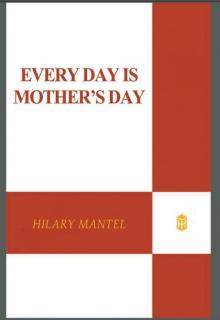 Every Day Is Mother's Day
Every Day Is Mother's Day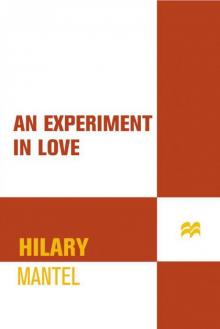 An Experiment in Love
An Experiment in Love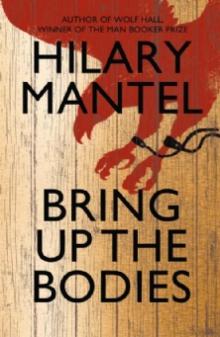 Wolf Hall
Wolf Hall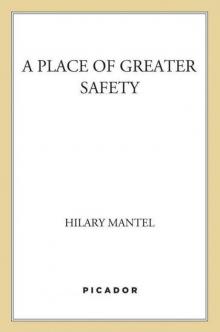 A Place of Greater Safety
A Place of Greater Safety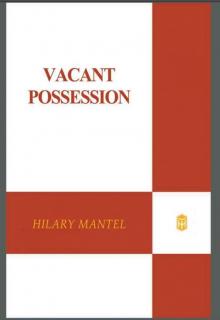 Vacant Possession
Vacant Possession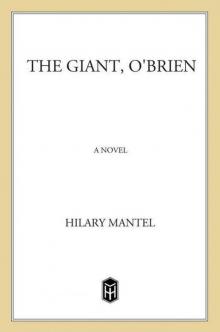 The Giant, O'Brien
The Giant, O'Brien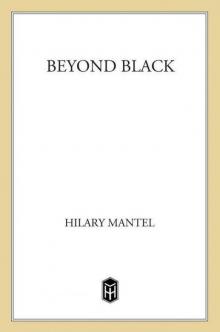 Beyond Black
Beyond Black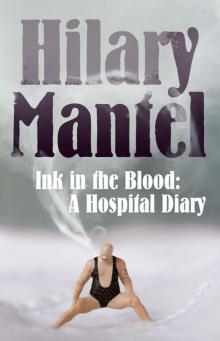 Ink in the Blood: A Hospital Diary
Ink in the Blood: A Hospital Diary The School of English
The School of English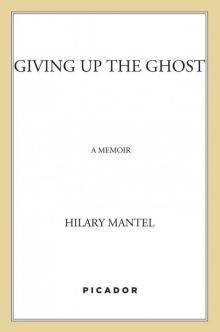 Giving Up the Ghost
Giving Up the Ghost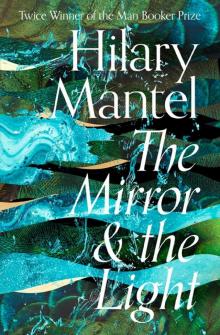 The Mirror and the Light: 2020’s highly anticipated conclusion to the best selling, award winning Wolf Hall series (The Wolf Hall Trilogy, Book 3)
The Mirror and the Light: 2020’s highly anticipated conclusion to the best selling, award winning Wolf Hall series (The Wolf Hall Trilogy, Book 3)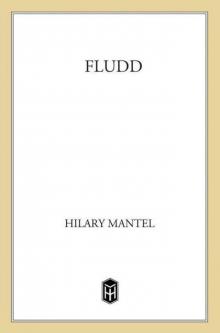 Fludd
Fludd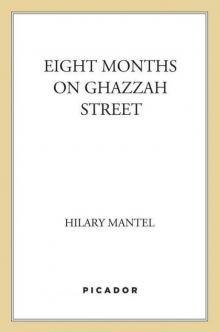 Eight Months on Ghazzah Street
Eight Months on Ghazzah Street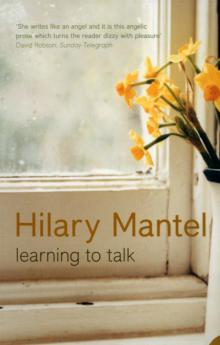 Learning to Talk
Learning to Talk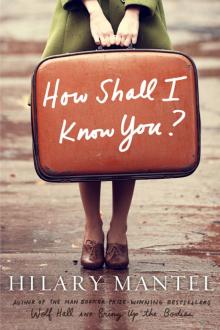 How Shall I Know You?: A Short Story
How Shall I Know You?: A Short Story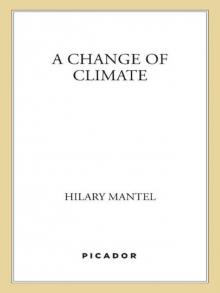 A Change of Climate
A Change of Climate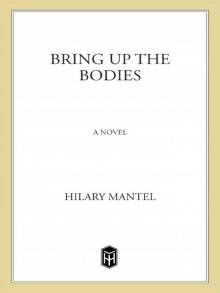 Bring Up the Bodies
Bring Up the Bodies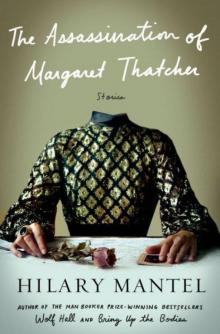 The Assassination of Margaret Thatcher: Stories
The Assassination of Margaret Thatcher: Stories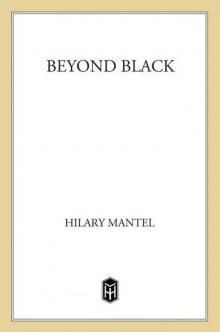 Beyond Black: A Novel
Beyond Black: A Novel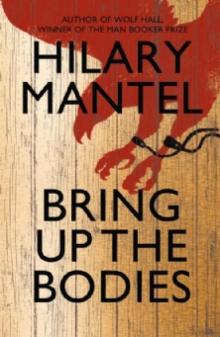 Wolf Hall: Bring Up the Bodies
Wolf Hall: Bring Up the Bodies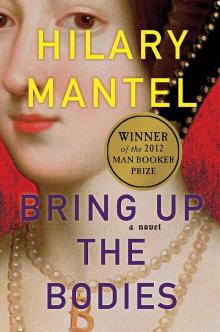 Bring Up the Bodies tct-2
Bring Up the Bodies tct-2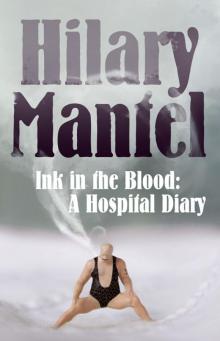 Ink in the Blood
Ink in the Blood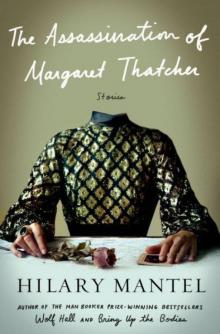 The Assassination of Margaret Thatcher
The Assassination of Margaret Thatcher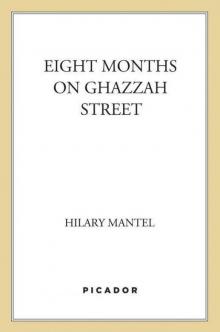 Eight Months on Ghazzah Street: A Novel
Eight Months on Ghazzah Street: A Novel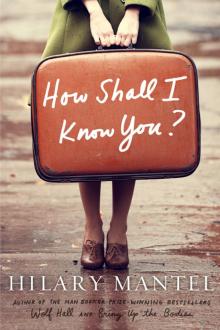 How Shall I Know You?
How Shall I Know You?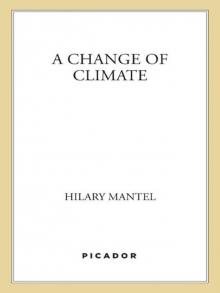 A Change of Climate: A Novel
A Change of Climate: A Novel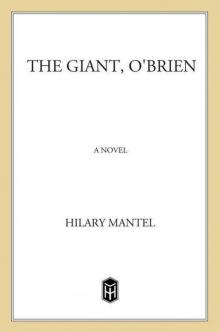 The Giant, O'Brien: A Novel
The Giant, O'Brien: A Novel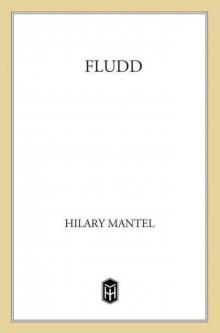 Fludd: A Novel
Fludd: A Novel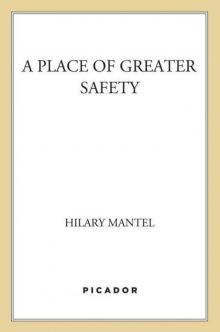 A Place of Greater Safety: A Novel
A Place of Greater Safety: A Novel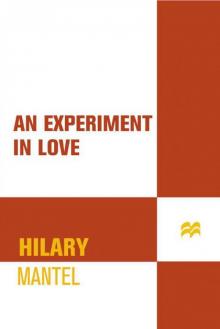 An Experiment in Love: A Novel
An Experiment in Love: A Novel